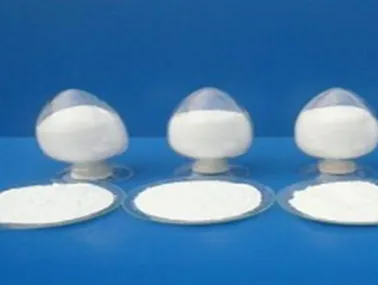
artificial sweeteners 950 951
The Role of Artificial Sweeteners E950 and E951 A Deep Dive into Health and Safety
In recent years, the proliferation of artificial sweeteners in food and beverage products has prompted a notable shift in consumer choices, particularly among those seeking to reduce sugar intake. Among the range of artificial sweeteners available today, E950 (Acesulfame K) and E951 (Aspartame) stand out for their widespread use and the extensive research surrounding their health implications. This article aims to explore the characteristics, safety assessments, and health considerations of these two sweeteners.
Understanding E950 and E951
E950, commonly known as Acesulfame K or Acesulfame Potassium, is a calorie-free sweetener that is approximately 200 times sweeter than sucrose (table sugar). It is often used in combination with other sweeteners to enhance flavor profiles in various food products, including soft drinks, dairy products, and baked goods. Acesulfame K is heat-stable, making it suitable for cooking and baking, which is an advantage over some other sweeteners that degrade at high temperatures.
E951, or Aspartame, is another popular artificial sweetener, known for its sweetness which is about 200 times that of sugar as well. Unlike Acesulfame K, Aspartame is not heat-stable, which limits its use primarily to cold foods and beverages, such as diet sodas and sugar-free desserts. Aspartame is made up of two amino acids, aspartic acid and phenylalanine, and provides fewer calories than sugar, as it is used in such small quantities.
Safety Assessments and Regulations
Both Acesulfame K and Aspartame have undergone rigorous safety evaluations by major health authorities worldwide, including the U.S. Food and Drug Administration (FDA), the European Food Safety Authority (EFSA), and the World Health Organization (WHO). These agencies have conducted extensive research to evaluate the potential health risks associated with their consumption.
artificial sweeteners 950 951

Acesulfame K was approved for use in food products in the United States in 1988 and has since become a staple in many low-calorie and sugar-free options. It has been deemed safe for human consumption within established acceptable daily intake (ADI) levels. The ADI for Acesulfame K is set at 15 mg per kilogram of body weight, allowing consumers to enjoy products containing this sweetener without exceeding safety limits.
Aspartame, on the other hand, has been a subject of controversy over the years, primarily due to claims linking it to various health issues, including cancer. However, extensive reviews of the available evidence have consistently shown that Aspartame is safe for consumption for the general population, aside from individuals with phenylketonuria (PKU), a rare genetic disorder that impairs the body's ability to process phenylalanine.
Health Considerations and Potential Effects
One of the primary motivations for using artificial sweeteners like Acesulfame K and Aspartame is to assist in weight management and control blood sugar levels without sacrificing sweetness. Despite concerns surrounding artificial sweeteners, they can be beneficial tools for individuals looking to reduce their calorie intake or manage diabetes.
However, a growing body of research has prompted a reevaluation of the long-term effects of artificial sweeteners. Some studies suggest a potential link between high consumption of artificial sweeteners and metabolic issues, including increased appetite and cravings for sugary foods. As a result, it is crucial for consumers to be mindful of their overall dietary patterns and to seek a balanced approach to sweetener consumption.
Conclusion
In conclusion, E950 (Acesulfame K) and E951 (Aspartame) are significant players in the landscape of artificial sweeteners, offering benefits for reducing sugar intake and calorie consumption. While they have been thoroughly studied and found to be safe for most individuals, it is essential for consumers to remain informed about their use and potential health implications. Moderation is key, and incorporating a variety of sweet options—both natural and artificial—can lead to a healthier and more balanced diet. As the conversation around artificial sweeteners continues to evolve, ongoing research and consumer awareness will play vital roles in shaping public perception and dietary practices in the future.
-
Understanding Synthetic Rubber OptionsNewsApr.27,2025
-
Trichloroisocyanuric Acid: Essential for Clean and Safe WaterNewsApr.27,2025
-
Sodium Dichloroisocyanurate: Key to Safe Water TreatmentNewsApr.27,2025
-
Sodium Acid Pyrophosphate: Essential in Modern Food ProcessingNewsApr.27,2025
-
Essential Water Treatment ChemicalsNewsApr.27,2025
-
Denatured Alcohol and Its Industrial UsesNewsApr.27,2025
-
The Versatile Uses of Sodium BicarbonateNewsApr.24,2025
Hebei Tenger Chemical Technology Co., Ltd. focuses on the chemical industry and is committed to the export service of chemical raw materials.
-

view more DiethanolisopropanolamineIn the ever-growing field of chemical solutions, diethanolisopropanolamine (DEIPA) stands out as a versatile and important compound. Due to its unique chemical structure and properties, DEIPA is of interest to various industries including construction, personal care, and agriculture. -

view more TriisopropanolamineTriisopropanolamine (TIPA) alkanol amine substance, is a kind of alcohol amine compound with amino and alcohol hydroxyl, and because of its molecules contains both amino and hydroxyl. -

view more Tetramethyl Thiuram DisulfideTetramethyl thiuram disulfide, also known as TMTD, is a white to light-yellow powder with a distinct sulfur-like odor. It is soluble in organic solvents such as benzene, acetone, and ethyl acetate, making it highly versatile for use in different formulations. TMTD is known for its excellent vulcanization acceleration properties, which makes it a key ingredient in the production of rubber products. Additionally, it acts as an effective fungicide and bactericide, making it valuable in agricultural applications. Its high purity and stability ensure consistent performance, making it a preferred choice for manufacturers across various industries.











